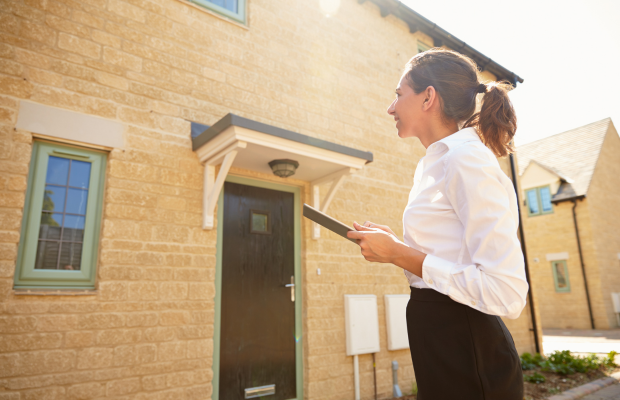Purchasing a home and getting a mortgage are huge commitments, but sometimes buyers find themselves ready to move on sooner than they expected.
Selling your home immediately after buying is not recommended for numerous reasons, but if you’re in this predicament due to a new job opportunity or a change in circumstances, you might be wondering: How soon can you sell your home? Let’s take a look.
Is it illegal to sell a property as soon as you’ve bought it?
While there are no legal restrictions on the minimum period you can sell your home after buying it, many homeowners are involved with mortgages and contracts that can limit how soon you can place your property back on the market.
If you want to sell your home immediately after buying it, you may have the right to do so; just make sure there aren’t any restrictions within your mortgage agreement.
Access no-obligation mortgage advice
Will I pay more tax if I sell a property early?
When selling a property early, there are certain taxes levied against speculators who purchase a property in order to sell it immediately for a profit.
This includes capital gains tax, which is where you must pay tax on the profit you create from the sale. This can be up to 37% if you sell it within two years of owning the property. Just by waiting to hit the one-year mark of homeownership, you could save thousands on taxes.
It also should be noted that some mortgage lenders will be wary of involving themselves with individuals who want to have a quick turnover of a property. They may question why you’re selling so soon after buying, as this can raise concerns about money laundering.
It’s important to be completely transparent about your reason for moving and to stress the fact that you will not be selling so soon after your next purchase.
Getting a mortgage for a property you intend to sell soon
While there’s no law stipulating how soon someone can sell after buying, most lenders won’t offer a mortgage to a new buyer if the seller has lived in their property for less than six months. This is sometimes put in place to reduce the risk for the lender, as they intend to avoid back-to-back transactions.
If you’re looking to remortgage or pay off your mortgage quicker than expected, there are conditions to this, including early repayment charges. An early repayment charge is a fee that you must pay your lender if you end your mortgage deal before the agreed-upon end date. This ERC (early repayment charge) can range from 1-5% of your outstanding mortgage balance.
How easy is it to resell a property you’ve just bought?
When you purchase a home with a mortgage, it should be assumed that you will own the property for around 10 years, unless you are a first-time buyer. So, if you try to sell your house in under a year, suspicion can be raised by future homeowners or even the agents. This can sometimes mean there is something wrong with the property, area, or neighbours.
When selling a property, you must declare any issues on your TA6 property information form, and you can be penalised with legal action if not done correctly. This could also mean you would have to mark your property lower than its value.
Reasons you might want to sell early
For most people, buying a home is a long-term financial and emotional commitment, so selling early is a decision that shouldn’t be taken lightly. However, there are many reasons why you might need to sell early, such as:
-
You have inherited a property that you don’t wish to rent out or live in
-
You are an investor who has flipped a property for profit
-
You have discovered something unexpected after purchasing the property. E.g., problem neighbours or inability to obtain planning permission
-
Your personal circumstances have suddenly changed E.g., divorce, ill health, or a job change.
Related: How to sell after purchasing through a Help to Buy scheme
How long are you liable after selling a house?
Once you have moved out of your property and the sale has gone through, you would assume that everything is complete. But in fact, you are still liable for the property.
The property buyer can claim back on any issues with the property that weren’t highlighted within the contract or if the issues were there before the contracts were exchanged. This will reduce the value of the property it was originally sold for.
The Misrepresentation Act of 1967 protects the buyer and gives them up to six years to file a claim for any issues you may have concealed during the contract exchange. This is why it is best to be open and honest about the property, ensuring you won’t have to worry about any claims made in the future.
Why you should use an agent to sell
It’s important to book a valuation with an estate agent whenever you are ready to sell your home, especially if you have just bought it. This will help you to get the best possible price for your property.
Having an estate agent will also increase buyer potential and ease concerns about how quickly it has been placed back on the market.
Get in touch with us today and let’s restart your selling journey.







